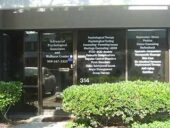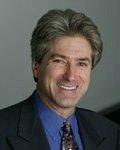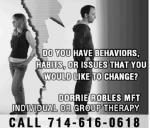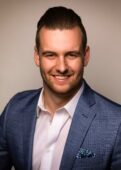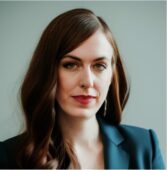Addictions therapists in Rancho Cucamonga, California CA
We are proud to feature top rated Addictions therapists in Rancho Cucamonga, CA. We encourage you to review each profile to find your best match.
View nearby cities
Barbara Jaurequi Counseling
Marriage and Family Therapist, MS, LMFT, MAC
Treating addiction is both a professional and a personal passion of mine. I've been in recovery for my own addictions for more than 23 years. Helping others find relief from the relentless problem of addiction is perhaps the most meaningful aspect of my work. I embrace a combination of psychotherapy, emotional healing and group support to really attack the addiction from all sides. Please visit my website (BarbaraJCounseling.com) to read more about my approach to addiction treatment - my #1 practice specialty.
15 Years Experience
In-Person in Rancho Cucamonga, CA 91730
Online in Rancho Cucamonga, California
Advanced Psychological Associates & Wellness Center
Psychologist, PsyD, Phd, LMFT, LPCC, LCSW, Certified Hypnotist & Biofeedback Technician, Massage & Acupuncturist
Our goal is to help you uncover your true potential, and lead a life that is worth celebrating. While we can't change difficult situations of the past, we can work together to better understand and resolve challenges in your life. Our practice style is goal oriented using numerous approaches.
22 Years Experience
In-Person in Rancho Cucamonga, CA 91730
Don ( "Dr Don" ) Etkes
Marriage and Family Therapist, Ph.D., MFT
I helped many people to cope with various types of addictions: Alcoholism, sex addiction, drugs and many others.
37 Years Experience
In-Person Near Rancho Cucamonga, CA
Online in Rancho Cucamonga, California
Dr. Lynne Logan
Marriage and Family Therapist, Ph.D., Licensed Marriage and Family Therapist
Addiction problems play havoc in families, relationships and one's health. Often, depression, anxiety and PTSD are underlying problems in addiction. No one wakes up one morning saying to themselves, "I want to become an addict." Most addicted people would turn back the clock if they could. But there is hope. One day at a time, a person can change their life for the better -- and forever. I worked in the Addiction Medicine Dept at Kaiser and did a residency at Betty Ford.
39 Years Experience
In-Person Near Rancho Cucamonga, CA
Dr. Lois Nightingale
Psychologist, MA, Ph.D.
I have been working Chemical Dependency clients and their families since 1983. I support 12-Step Programs and work with clients during and after structured rehab programs.
41 Years Experience
In-Person Near Rancho Cucamonga, CA
Online in Rancho Cucamonga, California
Newport Academy
Licensed Mental Health Counselor
If you don’t know much about the realities of teen substance abuse, you are not alone. That’s what we’re here for. Hence, the Newport Academy teen substance abuse Treatment Team can help. In response, we effectively focus on the underlying issues that lead to teenage drug abuse.
16 Years Experience
In-Person Near Rancho Cucamonga, CA
Online in Rancho Cucamonga, California
Clare Waismann
Drug and Alcohol Counselor, Registered Addiction Specialist (RAS), Substance Use Disorder Certified Counselor (SUDCC)
Specialty A
Rapid detox under anesthesia. The patient remains in a private ICU room sleeping under anesthesia while our quadruple board-certified medical director, Michael H. Lowenstein, M.D., uses antagonist medications to induce and speed the acute withdrawal. The procedure lasts less than two hours, the patient wakes up shortly after and has already received medication to prevent physical cravings. The patient remains in ICU receiving IV medications, fluids, and vitamins while the team manages vitals throughout that day and overnight. Aftercare is then provided at a specialized retreat for a few days during the regulation period to maximize detox success.
Specialty B
Medically assisted detoxification. The patient stays in a private room for one to three days, depending on their individual needs, while receiving high levels of medication to blunt the withdrawal syndrome. The patient receives sedatives but is not put under anesthesia. This minimizes the horrible withdrawal symptoms associated with detox and maximizes comfort and safety. They also receive IV medications, fluids and vitamins while the team manages vitals. Aftercare is also provided at a specialized retreat for a few days during the process.
Specialty C
Aftercare services provided by Domus Retreat®. A private facility for our patients to receive continued care, around the clock support and services to successfully complete their treatment. This gives the patient the ability to recover without placing the burden of care on a family member or friend. Patients receive individual psychotherapy. This level of one-on-one attention ensures the assessment of unique emotional issues. It also enables our therapist and Clinical Director of Domus Retreat, David B. Livingston, LMFT, to suggest and guide each individual through the process of seeking further psychological or psychiatric care, when needed. Other services include massage, yoga, and counseling to support their emotional and physical transition to an opiate free life.
26 Years Experience
In-Person Near Rancho Cucamonga, CA
Dorrie Robles MFT
Marriage and Family Therapist, LMFT
We specialize in treating addictions due to drugs, alcohol, and self mutilation.
25 Years Experience
In-Person Near Rancho Cucamonga, CA
Christian Holmes
Marriage and Family Therapist, M.A., Associate Marriage and Family Therapist
It's hard to admit when we have a problem. The truth is addiction isn't really about the substance, it's about what's going on beneath the surface. In therapy, I create a supportive, nonjudgmental environment where we can discover what is really going on so we can face it, transcend it, and transform in the process.
6 Years Experience
In-Person Near Rancho Cucamonga, CA
Online in Rancho Cucamonga, California
Mary Knoblock
Hypnotherapist, Licensed RTT Practitioner, Clinical Hypnotist, Duke Certified Health Coach, Spiritual Counselor
With the use of RTT and other tools like emotion code and health coaching and hypnosis, I find that clients respond favorably and find their addiction lesson in and their coping skills increasing to deal with addictions/substance abuse etc.
9 Years Experience
Online in Rancho Cucamonga, California (Online Only)

